Cancer cells rely on efficient uptake, conversion, and exchange of nutrients and vitamins to support their rapid growth and survival. The molecular transport channels that allow passage of nutrients between the different cellular compartments are critical for the survival of cancer cells and are thus promising as potential drug targets. However, drug discovery efforts are hampered by a lack of basic understanding of these channels' identities, functions, and regulation inside cancer cells. Dr. Kory's research aims to identify transporters central to cancer cell nutrient supply and detoxification pathways and determine their role in the emergence, survival, and aggressiveness of cancer. Her research is relevant to all cancers, but particularly pediatric, blood, and breast cancers.
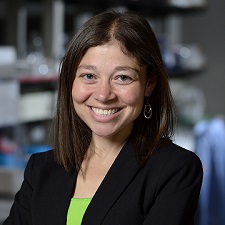
Groundbreaking advances in immunotherapy have revolutionized the treatment of cancer. In particular, new antibody drugs that block immunosuppressive pathways have achieved remarkable success in reawakening the immune system to clear tumor cells, leading to lasting cures in patients whose cancers do not respond to any other therapies. Unfortunately, the majority of patients (>70%) do not respond to immunotherapy treatment. It is difficult to predict which patients will benefit, creating an urgent demand for novel immunotherapy drugs that act through alternative mechanisms. Dr. Spangler is working to develop a class of antibody therapeutics that target cancer-promoting pathways in a different way than all current immunotherapies, with the goal of drastically expanding the percentage of cancer patients who benefit from them.
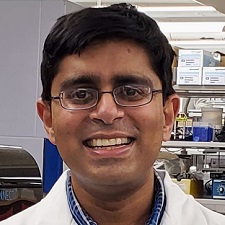
Epidemiologic studies have revealed that many cancer types display differences in incidence or outcomes between the sexes. In most cases, these differences are only partially explained by non-genetic factors such as hormonal differences, carcinogen exposure, lifestyle, and access to health care. Our understanding of how genetic factors contribute to differences in cancer incidence between the sexes remains incomplete. A fundamental genetic difference between the sexes is in chromosome composition. Relative to male somatic cells, female somatic cells have an extra X chromosome. Most genes on the second copy of chromosome X in females are inactivated via a process known as X-chromosome inactivation, which approximately equalizes the dosage of X-linked genes between males and females. Dr. Viswanathan's project tests the hypothesis that genetic alterations to the X chromosome in cancer may perturb this carefully regulated process and thereby contribute to differences in cancer incidence or pathogenic mechanisms between males and females.
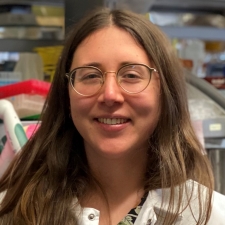
When an organism is developing, it must correct mistakes that might occur at the level of individual cells or tissues. Dr. Triandafillou [National Mah Jongg League Fellow] wants to better understand how error correction systems work, and why they might not work in cases like cancer. To explore these developmental questions, Dr. Triandafillou uses what are called gastruloids, 3D clusters of stem cells that can organize themselves and transform into the basic building blocks of an organism. She developed a method using microscopy to trace the history of these cells and measure how much their past state and history influence what they become. Dr. Triandafillou wants to see how differences in individual cells might impact what those cells eventually turn into, and how such differences affect the correction of mistakes like abnormal growth, bias in cell types, or missing cell types. She is also interested in how the cells around an error react to it. Dr. Triandafillou received her PhD from the University of Chicago and her BS from Temple University.
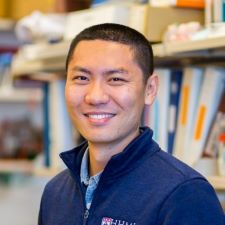
On the cellular level, aging manifests as cellular senescence—when cells permanently stop multiplying but do not die. Aberrant accumulation of senescent cells is thought to be a major contributor to age-dependent tissue degeneration and its associated pathologies. Elimination of senescent cells has been shown to improve age-associated tissue damage pathologies and extend healthy lifespan in mice. Senescent cells undergo extensive remodeling on their surface, including increased production of many surface proteins. Dr. Zhang [HHMI Fellow] is using a quantitative proteomics approach to investigate the mechanisms and biological consequences of cell surface remodeling in senescent cells. His goal is to identify new therapeutic targets on the senescent cell surface and develop next-generation chimeric antigen receptor (CAR) T cells and antibodies to evaluate their impact on age-related diseases. Success with this approach may have a transformative impact on treating life-threatening diseases like cancer, fibrosis, and atherosclerosis. Dr. Zhang received his PhD from Gerstner Sloan Kettering Graduate School and his BS from Sun Yat-Sen University.
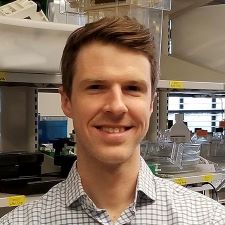
Dr. Woida studies the foodborne pathogens Listeria monocytogenes and Shigella flexneri that enter and replicate within human cells. These bacteria also directly infect neighboring cells by pushing against the host cell membrane to form long membrane protrusions that extend and eventually release the bacteria into the new cell. This process of cell-to-cell spread requires the bacteria to hijack intercellular signaling pathways to reshape the host cell membrane. These signaling pathways normally regulate human cell adhesion and motility, and their dysregulation promotes tumor growth and metastasis. Dr. Woida’s goal is to uncover the unique mechanisms by which these pathogens remodel the host cell membrane to gain insight into how the co-opted intercellular signaling pathways function under both healthy conditions and tumor progression. Dr. Woida received his PhD from Northwestern University and his BS from the University of Illinois at Urbana-Champaign.
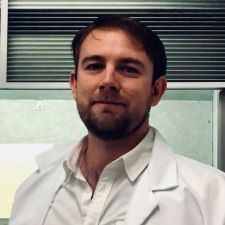
Cells are compartmentalized into membrane-bound and membrane-less organelles, providing spatial structure to the cell’s concentration of proteins and nucleic acids. Dr. Kilgore’s research aims to understand the environment inside different organelles and apply this knowledge to the development of targeted cancer therapies, as better targeting within the cell will improve drug efficacy, increase potency, and decrease side effects. Using both live cells and reductionist models, he will investigate how molecules distribute themselves within the cell as a function of their chemical properties. Learning and applying the chemical grammar of this spatial partitioning will enable the design and preparation of molecular probes and drugs that synergize with the chemistry of the cell as a mechanism of treating all cancers. Dr. Kilgore received his PhD from Massachusetts Institute of Technology and his BS from the University of California, Berkeley.
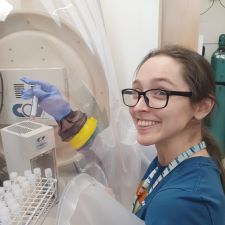
Immune checkpoint inhibitors, a type of cancer treatment that helps immune cells identify and kill tumor cells, have been a major breakthrough in the treatment of many cancer types. Unfortunately, not all patients respond to this immunotherapy. Dr. Hughes [Robert Black Fellow] is studying how gut microbes improve response to immune checkpoint inhibitors. The bacterium Akkermansia muciniphila lives in the gastrointestinal tract and has been shown to improve response to immune checkpoint inhibitors via poorly understood mechanisms. Dr. Hughes aims to discover how A. muciniphila improves response to cancer immunotherapies and to design microbe-based therapeutic strategies that will further enhance cancer immunotherapy responses. Dr Hughes received her PhD from UT Southwestern Medical Center and her BS from Baylor University.
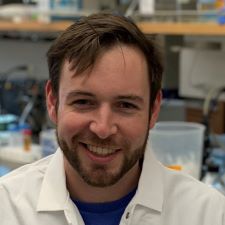
Macrophages are specialized immune cells responsible for “eating” harmful cells, presenting antigens to T cells, and initiating inflammation by releasing signaling molecules called cytokines. Macrophages could potentially be activated to attack tumor cells, but for reasons that are currently unclear, they instead signal for the tumor to grow faster and become more invasive. Dr. Courvan [HHMI Fellow] is investigating how macrophages respond to the low-oxygen environment inside tumors, and specifically how they regulate gene expression through post-transcriptional mechanisms in low-oxygen conditions. With this research, he hopes to uncover new ways to leverage the body's immune system against cancerous cells. Dr. Courvan received his PhD from Yale University and his BS from the University of Connecticut.
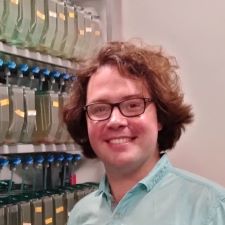
Evidence that aging is driven by defined, regulated processes (rather than simple “wear and tear”) has sparked hope that we might target these processes to fight age-related diseases. A particularly exciting example is the regulation of protein homeostasis, or the balance between protein synthesis, folding, and degradation. Protein homeostasis is deregulated in both cancer and normal aging, but the underlying mechanisms remain elusive. Dr. Boos will use the short-lived African turquoise killifish as a new model organism to study how different cells and tissues respond to protein misfolding, how they coordinate their responses, and how aging influences these pathways. This research will not only unravel fundamental mechanisms of aging, but also inform new strategies to fight multiple types of cancer. Dr. Boos received his PhD and his B.Ed. from the University of Kaiserslautern.
